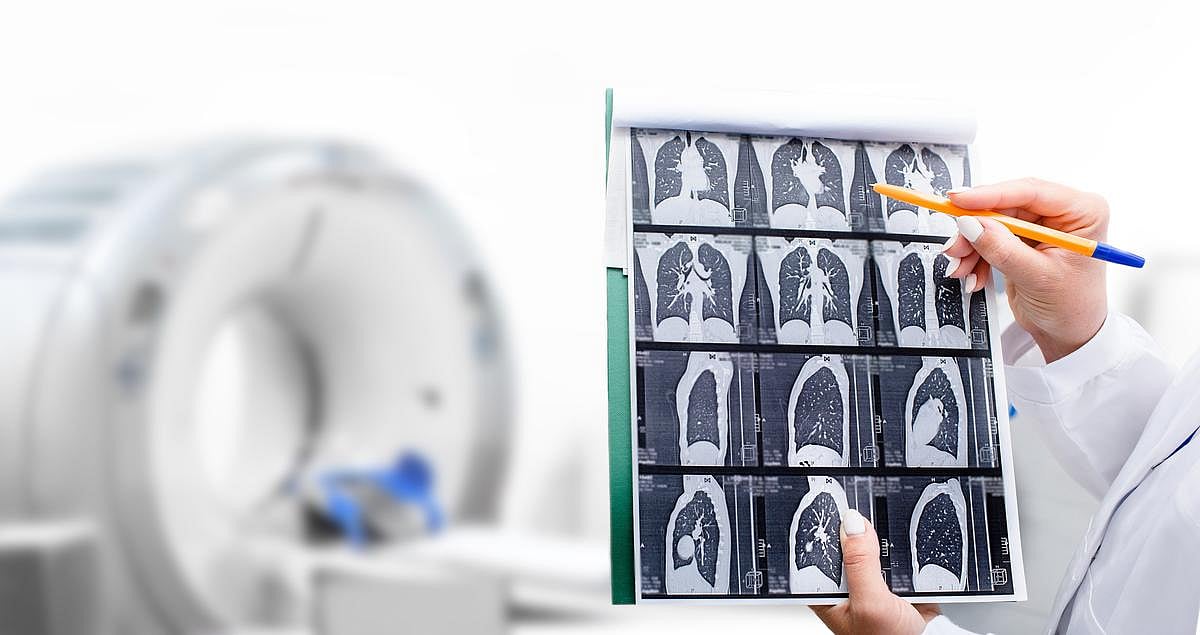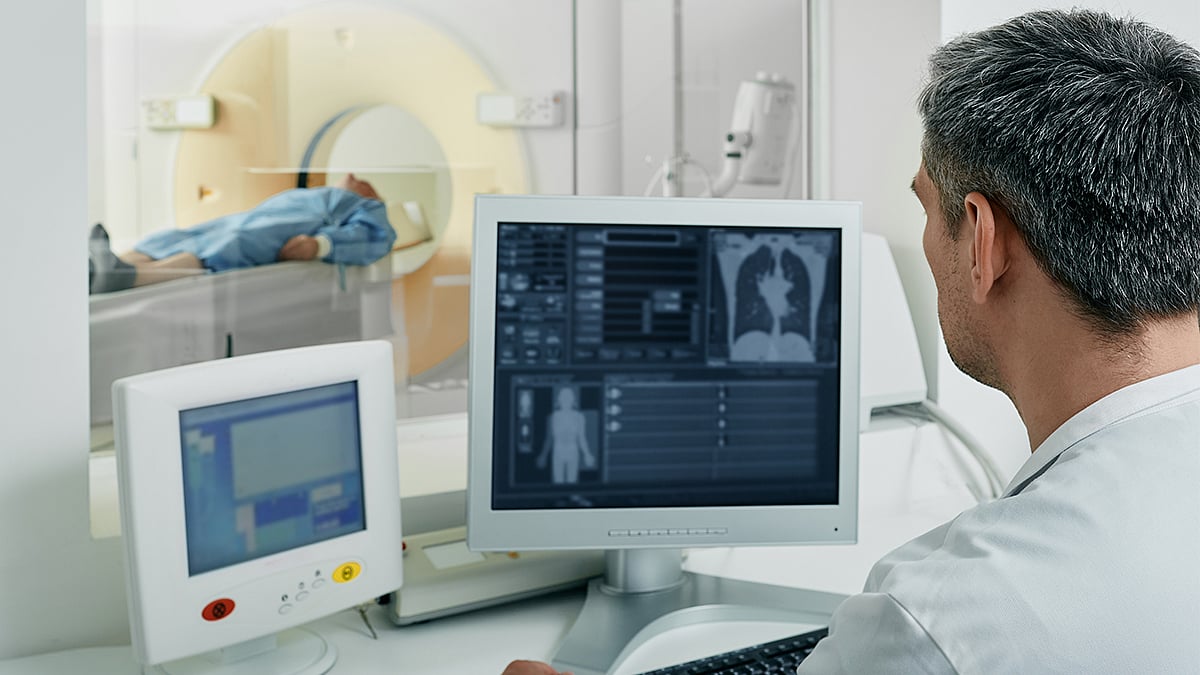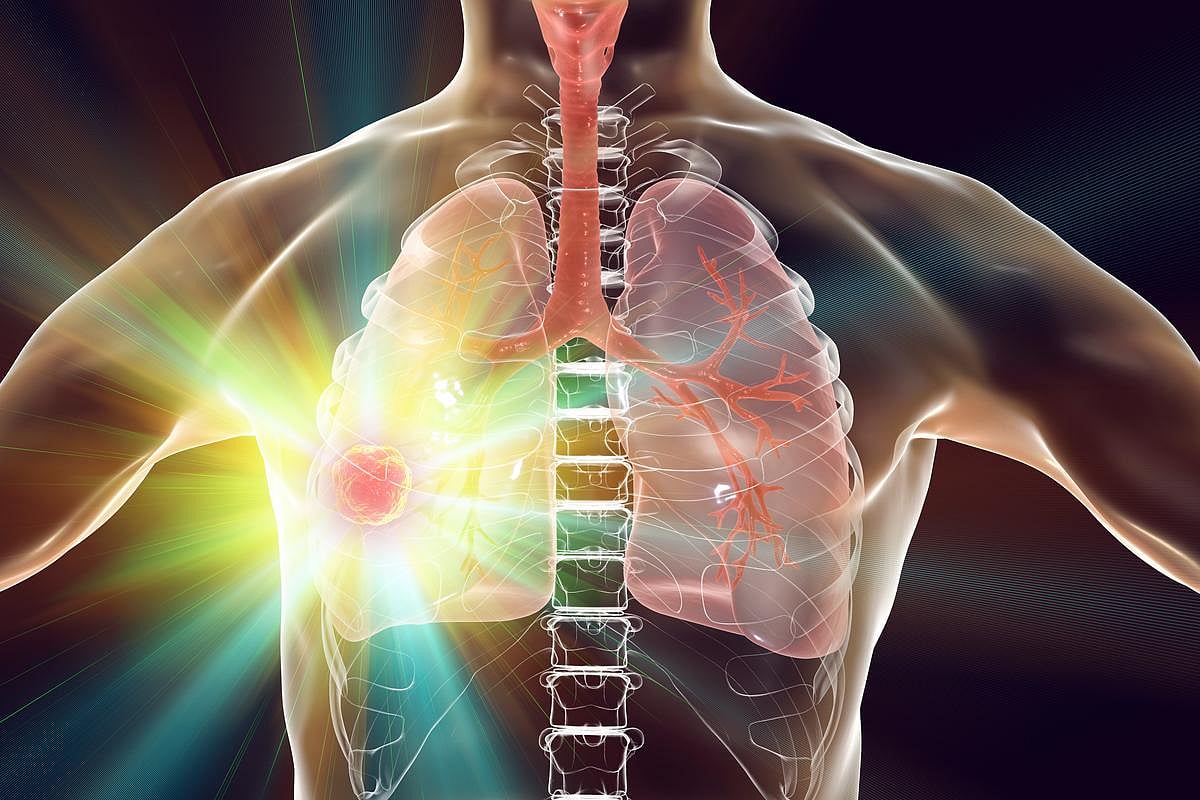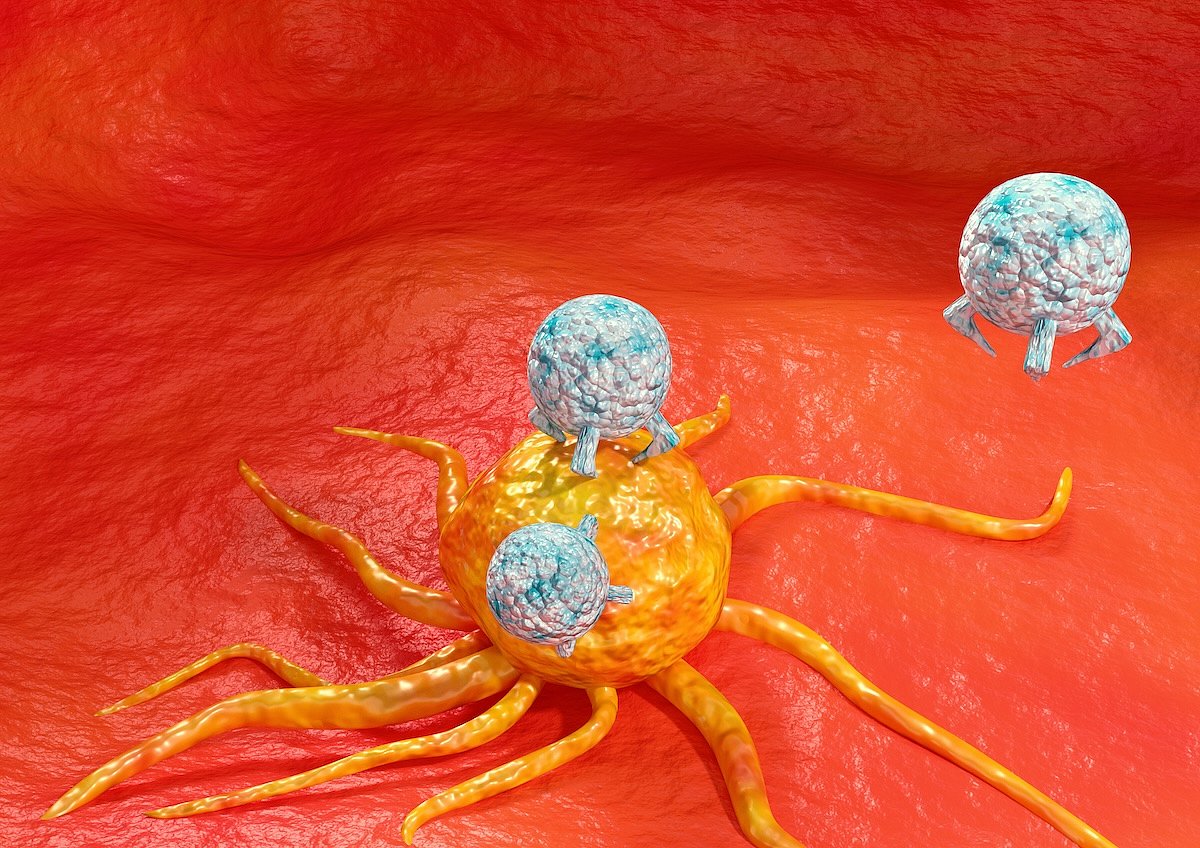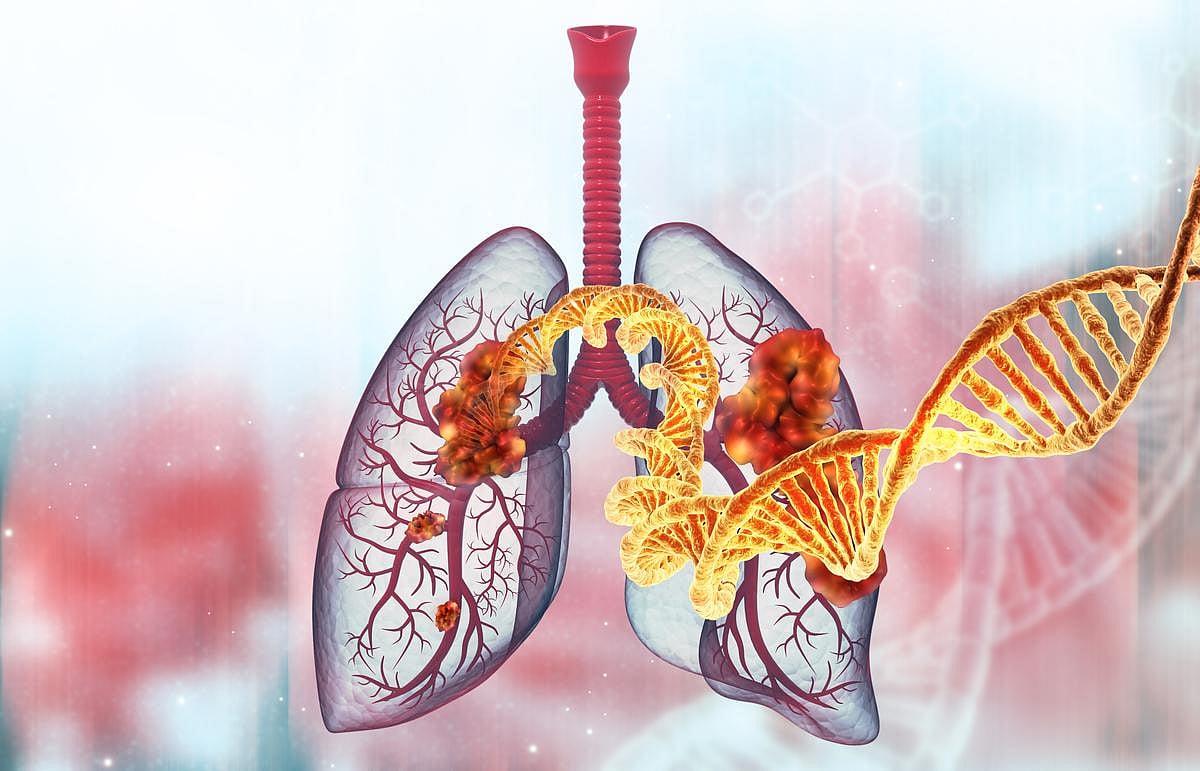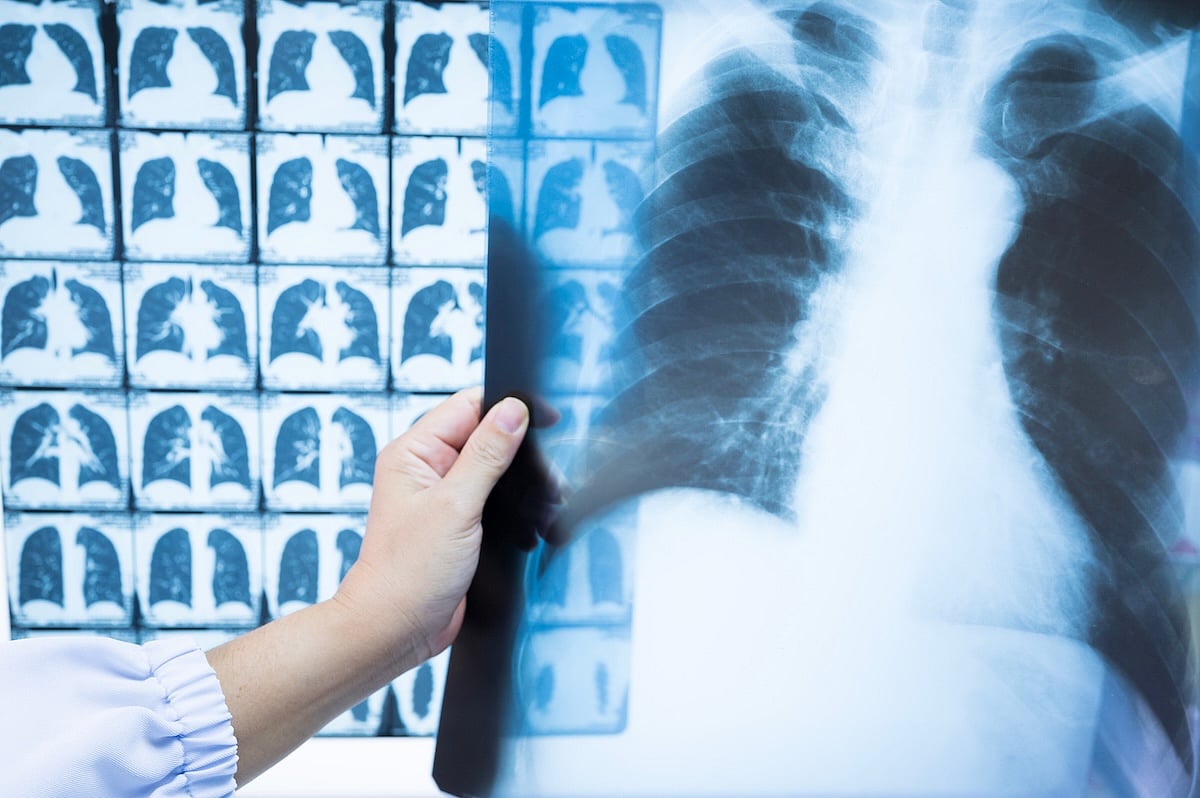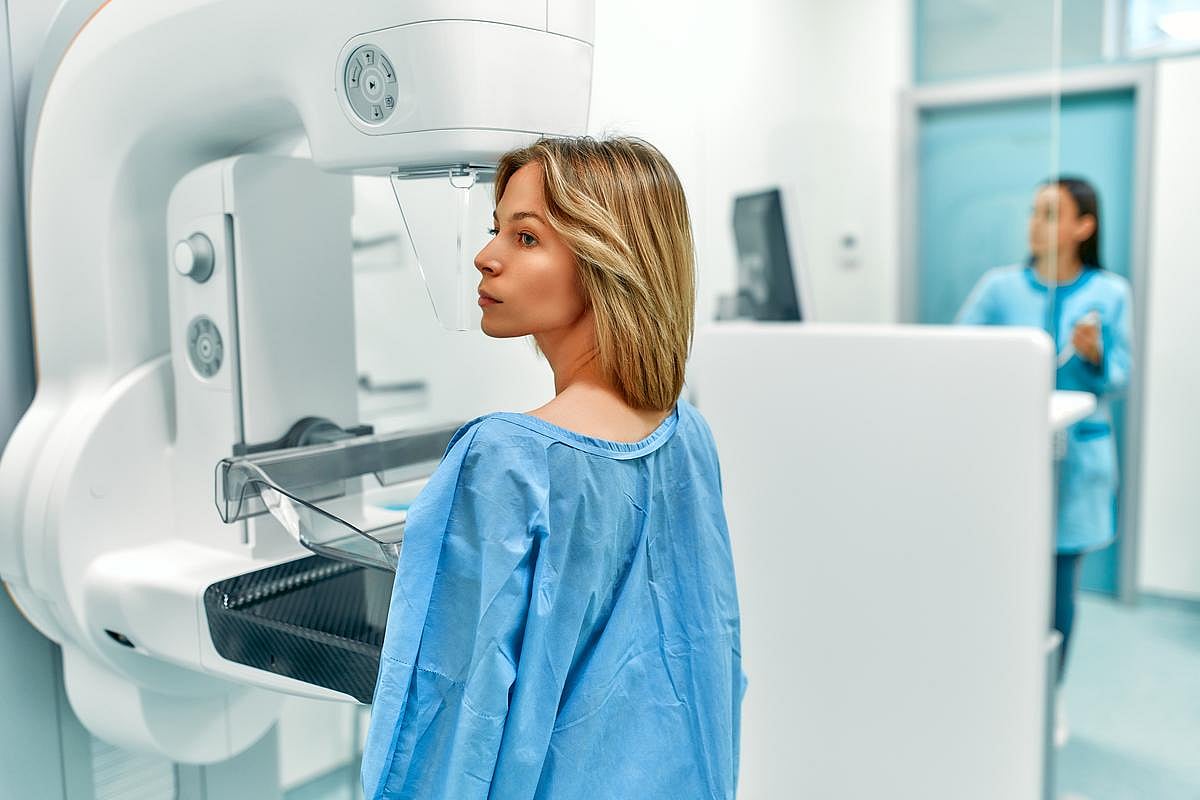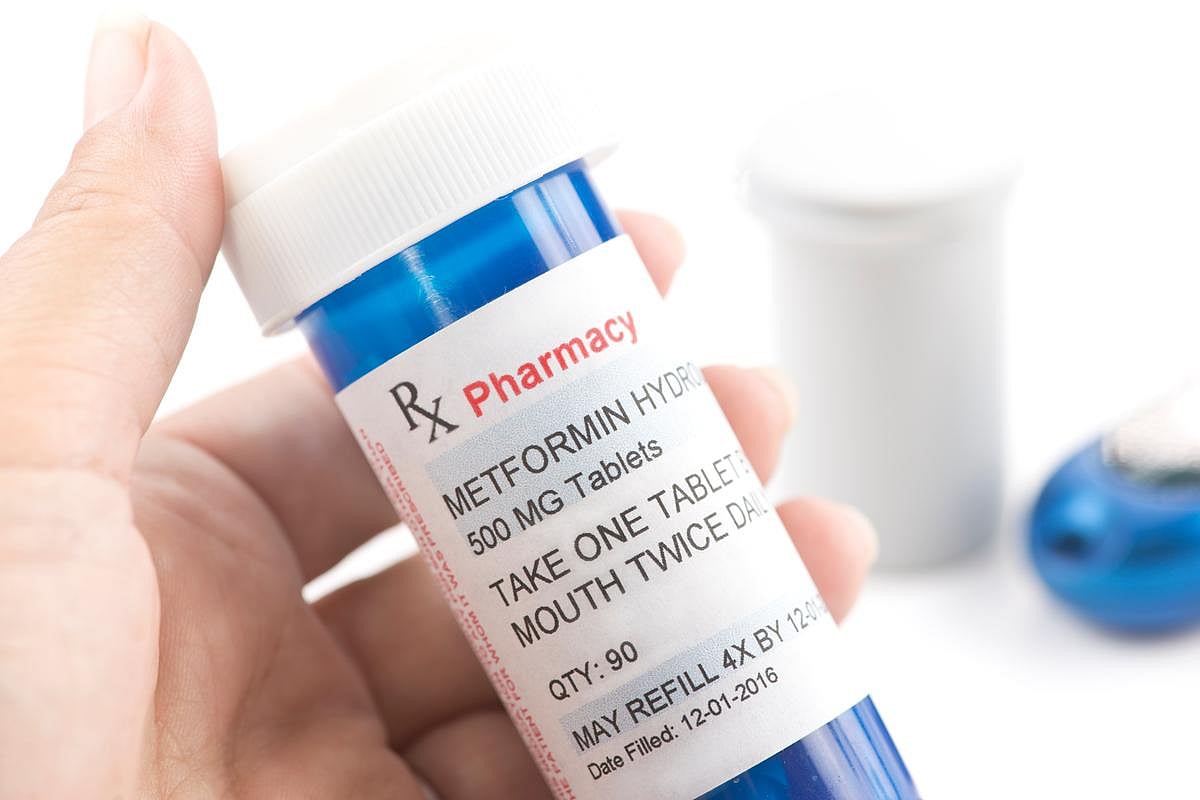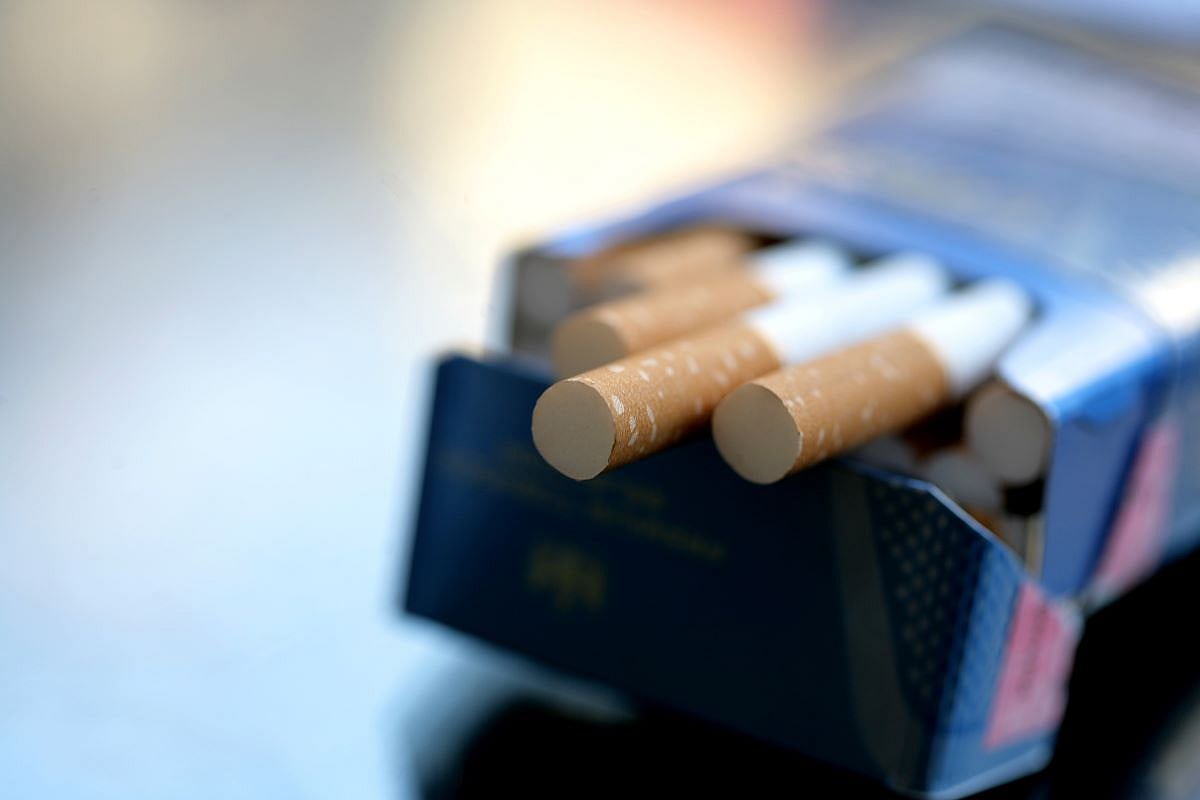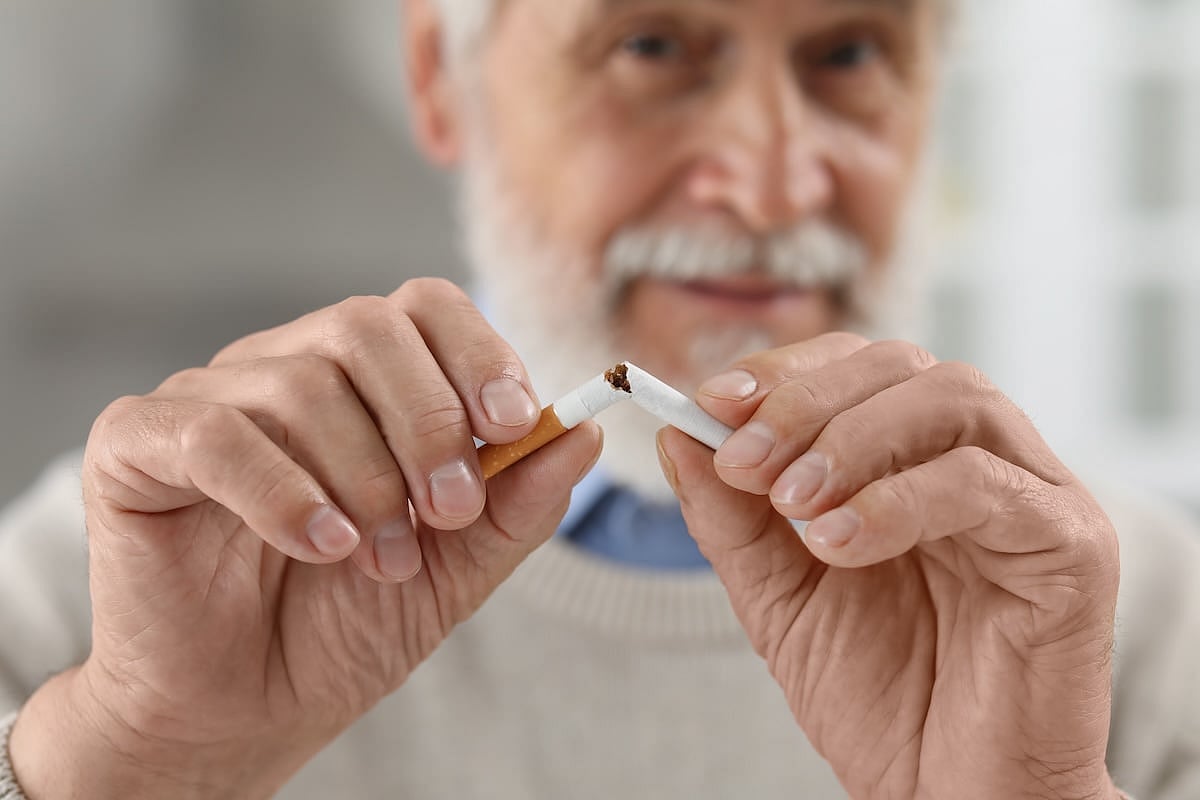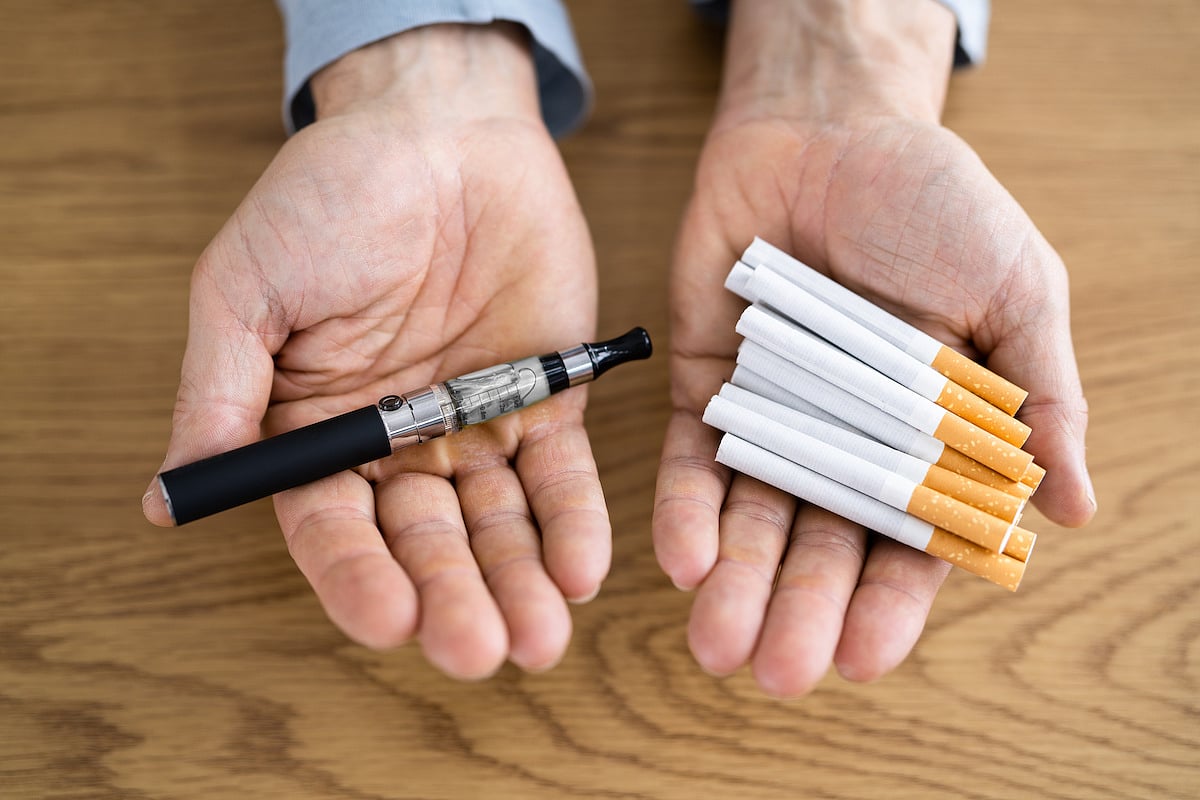Get Healthy!
Results for search "Cancer: Lung".
Health Videos - 6
Health News Results - 150
Mesothelioma is a rare type of cancer, most often caused by exposure to asbestos, according to the U.S. Centers for Disease Control and Prevention (CDC). Mesothelioma develops...
- David Hill, MD, Chair, Board of Directors, American Lung Association HealthDay Reporter
- |
- January 23, 2026
- |
- Full Page
Barry Manilow, the singer behind hits like "Copacabana," "Can’t Smile Without You" and "Mandy," announced that he has lung cancer and is postponing upcoming concerts to undergo surgery.
Manilow, 82, shared the news in a
Cancer survival might depend on what time of day you get your treatment, a new study says.
Lung cancer patients who received IV immunotherapy doses earlier in the day tended to live longer, according to results published online Dec. 8 in the journal
Under current screening guidelines, almost two-thirds of Americans with lung cancer would not have qualified for the CT chest scans that could have spotted tumors early and extended their lives, new research shows.
The finding hits home for 38-year-old Carla Tapia, a mother of three from Beltsville, Maryland. She smoked a bit in her youth but had kicked the habit by 18.
...
- Ernie Mundell HealthDay Reporter
- |
- November 24, 2025
- |
- Full Page
Three times as many lung cancer deaths could be prevented if everyone eligible for screening got a chest CT scan, a new study says.
Only about 1 in 5 U.S. adults eligible for lung cancer screening received it in 2024, researchers reported Nov. 19 in the
Lung cancer remains the leading cause of cancer death in the U.S., responsible for about 1 in 4, but major advances in screening, surgery and personalized treatment are helping more patients live longer.
“Lung cancer screening is the most powerful tool to reduce deaths from ...
- I. Edwards HealthDay Reporter
- |
- November 11, 2025
- |
- Full Page
Tobacco remains the leading preventable cause of cancer death in the U.S., despite a dramatic decline in smoking, a new American Cancer Society report says.
More than 80% of lung cancer deaths are linked to tobacco, according to data from the inaugural release of the American Heart Association’s...
- Dennis Thompson HealthDay Reporter
- |
- November 4, 2025
- |
- Full Page
Women are less likely than men to find a donor lung, despite new systems to make organ allocation fairer, a new study says.
Women were 32% less likely than men to receive a lung implant before the reforms went into effect in March 2023, researchers reported recently in the Annals of Thoracic Surge...
- Dennis Thompson HealthDay Reporter
- |
- October 28, 2025
- |
- Full Page
More folks might get screened for lung cancer if they’re given the tools to educate themselves and make their own decisions, a new study says.
An online education program led to increased lung cancer screenings among a group of current and former smokers, researchers reported Oct. 20 in the ...
- Dennis Thompson HealthDay Reporter
- |
- October 24, 2025
- |
- Full Page
Emergency responders to the World Trade Center collapse on 9/11 have a nearly tripled risk of lung cancer, a new study says.
The toxic dust and fumes that lingered over Ground Zero likely boosted lung cancer rates among rescue workers, researchers reported this month in
A cutting-edge robot-assisted bronchoscope can reach very small tumors growing in the lung’s deepest recesses, according to clinical trial results presented at a European Respiratory Society meeting in Amsterdam.
The device uses a specialized CT scanner to find tumors buried deep in hard-to-reach places of the lung, researchers said.
A robot helps guide the bronchoscope to tho...
- Dennis Thompson HealthDay Reporter
- |
- September 30, 2025
- |
- Full Page
Wildfires that tore through Los Angeles early this year may have caused hundreds more deaths than official reports show, new research suggests.
While the fires were said to have taken 31 lives, a study published Wednesday in the
Findings from a study in mice suggest that using a common artificial sweetener, sucralose, could hamper certain immunotherapy treatments in cancer patients.
However, for folks reluctant to give up the ubiquitous sweetener, the same team of scientists may have found a way around the problem: Giving mice a supplement that boosts levels of the natural amino acid arginine appeared to ne...
- HealthDay Reporter
- Ernie Mundell
- |
- August 4, 2025
- |
- Full Page
Experts already know that high consumption of ultra-processed foods is bad news for your health, and new research suggests these foods can raise risks for a major killer: lung cancer.
Besides the fact that ultra-processed foods are often high in salt, sugar and fat, people who c...
- HealthDay Reporter
- |
- July 30, 2025
- |
- Full Page
Powerful new immunotherapies are offering fresh hope for patients with many different types of cancer.
Unfortunately, that hope doesn’t extend to people without health insurance, a new study says.
Immune checkpoint inhibitors (ICIs) are revolutionizing cancer treatment by helping the ...
- HealthDay Reporter
- Dennis Thompson
- |
- July 9, 2025
- |
- Full Page
Two drugs used in lung cancer treatment appear to be tripping over each other, reducing patients’ chances for a cure, a new study says.
Corticosteroids are commonly prescribed to alleviate cancer-related symptoms in patients with non-small cell lung cancer, researchers said.
But these ster...
- HealthDay Reporter
- Dennis Thompson
- |
- July 8, 2025
- |
- Full Page
Wildfire smoke could make it harder for people with lung cancer to survive, a new study says.
Californians with lung cancer who breathed smoke from wildfires had a 20% increased risk of dying from their cancer, researchers reported Saturday at the American Society of Clinical Oncology’s (ASCO) annual meeting in Chicago.
Wildfire smoke contains particle pollution that can get d...
- HealthDay Reporter
- Dennis Thompson
- |
- June 2, 2025
- |
- Full Page
The timing of Cornelia Tischmacher’s pneumonia couldn’t have been worse -- eight months after the Berlin mom gave birth to twins.
But the pneumonia just wouldn’t go away, so Tischmacher went to a doctor in January 2018. Tests revealed that the then-40-year-old had stage 3 lung cancer...
- HealthDay Reporter
- Dennis Thompson
- |
- May 12, 2025
- |
- Full Page
Colonoscopy for younger adults. Chest CT scans for lung cancer. Statin meds to lower cholesterol. Screening for drug addiction.
More than 150 million Americans might lose no-cost access to these and other preventive care services under a case being heard Monday at the U.S. Supre...
- HealthDay Reporter
- Dennis Thompson
- |
- April 21, 2025
- |
- Full Page
Immunotherapy might help keep lung cancer at bay for months or even years after the treatment has been abandoned due to side effects, a new study says.
Immune checkpoint inhibitors essentially take the brakes off the immune system, giving it free reign to hunt down and kill cancer cells.
Unfortu...
- HealthDay Reporter
- Dennis Thompson
- |
- April 21, 2025
- |
- Full Page
Lung cancer screening can save the lives of former and current smokers, but most aren’t taking advantage of it, a new study says.
Fewer than 1 in 5 people eligible for lung cancer screening go through with a chest CT scan, according to research published April 2 in the
Tobacco control measures like anti-smoking campaigns and cigarette taxes have prevented nearly 4 million lung cancer deaths during the past five decades, a new American Cancer Society study estimates.
More than 3.8 million lung cancer deaths were averted due to substantial reductions in smoking, gaini...
- HealthDay Reporter
- Dennis Thompson
- |
- March 26, 2025
- |
- Full Page
More smokers are getting CT screenings for lung cancer, thanks to guideline changes that included younger people and those who’ve smoked less, a new study says.
However, significant gaps remain for these potentially life-saving scans, particularly among people with limited access to health care,...
- HealthDay Reporter
- Dennis Thompson
- |
- March 24, 2025
- |
- Full Page
Cancer screenings can save lives by detecting cancer early, when treatment is most effective.
With an estimated 2 million new cancer cases expected in 2025, regular screenings are more important than ever, according to the American Cancer Society.
February is National Cancer Prevention Month, which make...
- HealthDay Reporter
- India Edwards
- |
- February 15, 2025
- |
- Full Page
Menthol cigarettes are under fire in the United States for promoting smoking among Black Americans, with a number of cities and states banning the smokes.
In response, the tobacco industry has come up with “menthol mimics” that imitate the cooling effect of menthol, and smokers are taking note of the innovation, a new study published Jan. 14 in
The lungs are a tempting place for cancer cells -- so much so that more than half of people with advanced cancer elsewhere in their bodies wind up with lung tumors.
Researchers now think they know why.
Elevated levels of an amino acid called aspartate appear to allow cancer cells to grow more easily inside the lungs, researchers reported in a study published Jan. 1 in the journal
- HealthDay Reporter
- Dennis Thompson
- |
- January 3, 2025
- |
- Full Page
“An ounce of prevention is worth a pound of cure,” founding father Benjamin Franklin once said.
That’s definitely true of cancer, a new study has found.
Cancer prevention and screening has saved more people from five types of cancer during the past 45 years than advances in tr...
- HealthDay Reporter
- Dennis Thompson
- |
- December 5, 2024
- |
- Full Page
Doctors have potent new weapons against the deadliest cancer in America and they want to make sure they're on the radar of current and former smokers.
"Lung cancer screening is the most powerful tool we have to lower cancer [deaths]," said
Already the go-to drug of choice for millions with type 2 diabetes, metformin might also fight lung cancer if those patients have it as well, new research shows.
Metformin appears to help boost the benefits of immunotherapy drugs used to fight lung tu...
- HealthDay Reporter
- Ernie Mundell
- |
- November 27, 2024
- |
- Full Page
The U.S. Supreme Court on Monday declined to hear a major tobacco company's challenge to a federal law that would mandate graphic images on cigarette packs.
Some of the proposed images include a woman with a large lump on her neck alongside the message "WARNING: Smoki...
- HealthDay Reporter
- Ernie Mundell
- |
- November 25, 2024
- |
- Full Page
More people with lung cancer are living longer, but it remains America's deadliest cancer, a new state-by-state report shows.
"There is more work to do, but I am incredibly optimistic about the future of lung cancer care," said Harol...
- HealthDay Reporter
- Carole Tanzer Miller
- |
- November 19, 2024
- |
- Full Page
An experimental portable device might be able to detect lung cancer from a person’s exhaled breath, researchers report.
The device contains “nanoflake” sensors that can detect small changes in the gases exhaled by a person with lung cancer.
The sensors specifically look for min...
- HealthDay Reporter
- Dennis Thompson
- |
- November 7, 2024
- |
- Full Page
Having close family and friends who care about their health makes women more likely to get regularly screened for cancer, a new study has found.
Women are more likely to undergo regular cancer screening if they have a tighter web of social and emotional connections, researchers reported Oct. 17 in the journal Cancer Causes & Contro...
- HealthDay Reporter
- Dennis Thompson
- |
- October 18, 2024
- |
- Full Page
It’s never too late for a person to quit smoking, even if they’re elderly, a new study finds.
Dropping the smokes even as late as 75 can meaningfully increase a person’s life expectancy, researchers reported recently in the
- HealthDay Reporter
- Dennis Thompson
- |
- October 10, 2024
- |
- Full Page
Many nonsmokers have lung nodules that have been linked to lung cancer, a new study warns.
About 42% of nonsmokers or former smokers have at least one lung nodule, which is a small mass of dense tissue that may be cancerous, according to chest CT scans performed on more than 10,400 people aged 45 and ...
- HealthDay Reporter
- Dennis Thompson
- |
- August 13, 2024
- |
- Full Page
New research suggests that switching from smoking to vaping won't prevent some dangerous changes to a person's genome.
A new study conducted in young adults shows similar cancer-linked gene changes in both vapers and smokers.
“These findings have significant...
- HealthDay Reporter
- Ernie Mundell
- |
- August 13, 2024
- |
- Full Page
Experts have long suspected it, but a new study confirms that folks who vape and smoke tobacco face higher risks for lung cancer than if they'd done either alone.
“From a public health perspective, we have always been concerned about dual-use of both traditional and e-cig products," said study lead author
Cancer rates are rising among Gen Xers and millennials, a new study reports.
Successively younger generations are more frequently being diagnosed half of the 34 known cancer types, researchers found.
For example, people born in 1990 have two to three times higher...
- HealthDay Reporter
- Dennis Thompson
- |
- August 1, 2024
- |
- Full Page
People who've had a history of smoking can get a lung cancer spotted early -- when it's most treatable -- through annual CT screening.
Unfortunately, most Americans polled in a new survey didn't know this potentially lifesaving screen exists.
“The survey shows that we have a significant a...
- HealthDay Reporter
- Ernie Mundell
- |
- August 1, 2024
- |
- Full Page
Lung cancer patients who underwent screening were more apt to be diagnosed at earlier stages and have better outcomes than patients who were not screened, new research shows.
The findings -- from a study of close to 58,000 patients diagnosed through the U.S. Veterans Health Administration -- underscore the importance of early detection...
- HealthDay Reporter
- Carole Tanzer Miller
- |
- June 11, 2024
- |
- Full Page
Only a fraction of Americans are getting recommended lung cancer screenings, new research shows.
While rates overall are up slightly, fewer than 1 in 5 people who are eligible for screening are up-to-date with it, according to the American Cancer Society-led study.
The society and the U.S. Preventive Services Task Force recommend a yearly computed tomography (CT) scan for peop...
- HealthDay Reporter
- Carole Tanzer Miller
- |
- June 10, 2024
- |
- Full Page
Researchers have shown that artificial intelligence (AI) can identify people who are at risk for lung cancer based on genetic markers in their blood.
"We have a simple blood test that could be done in a doctor's office that would tell patients whether they have potential signs of lung cancer and should get a follow-up CT scan," said corresponding author
If you've quit smoking and have switched to vaping instead, your odds for lung cancer won't fall as steeply as if you quit nicotine altogether, new research suggests.
"This is the first large population-based study to demonstrate the increased risk of lung cancer in e-c...
- HealthDay Reporter
- Ernie Mundell
- |
- May 21, 2024
- |
- Full Page
Immunotherapy can boost the survival of early-stage lung cancer patients eligible for surgery when it's combined with chemotherapy, a new clinical trial reports.
Those who got immunotherapy before and after surgery -- along with pre-surgical chemo -- had a 42% lower risk of cancer progression, recurre...
- HealthDay Reporter
- Dennis Thompson
- |
- May 16, 2024
- |
- Full Page
Chicago resident Arthur "Art"Gillespie fell ill in early March 2020 with COVID, after he and his father went to visit an uncle in a nursing facility.
"I was hospitalized for 12 days with a high fever and cough, and during that time, they were taking scans of my lungs, which showed stage 1 lung cancer on my right lung,"Gillespie, 56, recalled in a news release. "I had no symptoms of lung c...
- HealthDay Reporter
- Dennis Thompson
- |
- May 13, 2024
- |
- Full Page
Kentucky resident Chasity Harney embraced a thoroughly healthy lifestyle -- eating right, exercising and never touching tobacco.
So, her 2018 diagnosis of advanced lung cancer, which came at the age of 40, was a complete shock to both her and her family....
- HealthDay Reporter
- Dennis Thompson
- |
- April 11, 2024
- |
- Full Page
As the world's population ages, a new report warns that the number of people with cancer could climb 77% by 2050.
In the report, published Thursday in the journal CA: A Cancer Journal for Clinicians, researchers from the American Cancer Society found there were about 20 million cancer cases and ...
- HealthDay Reporter
- Robin Foster
- |
- April 5, 2024
- |
- Full Page









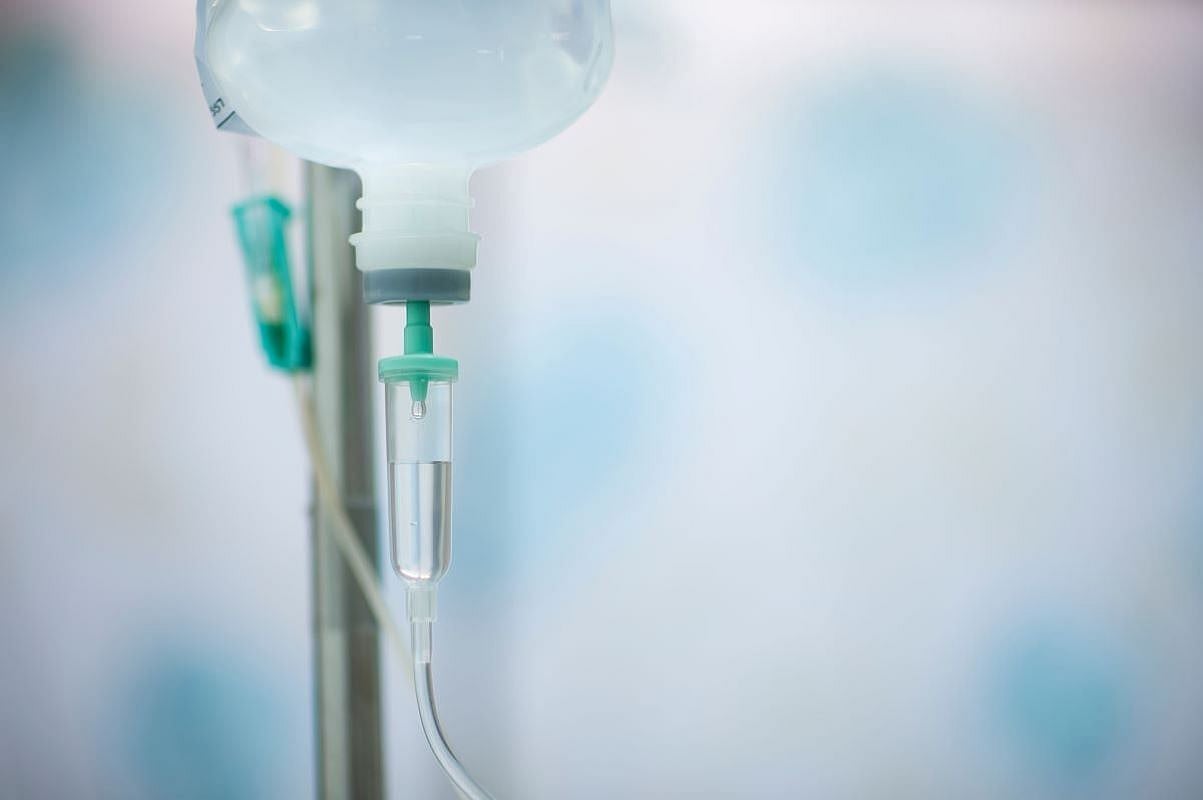
.jpeg?w=1920&h=1080&mode=crop&crop=focalpoint)
